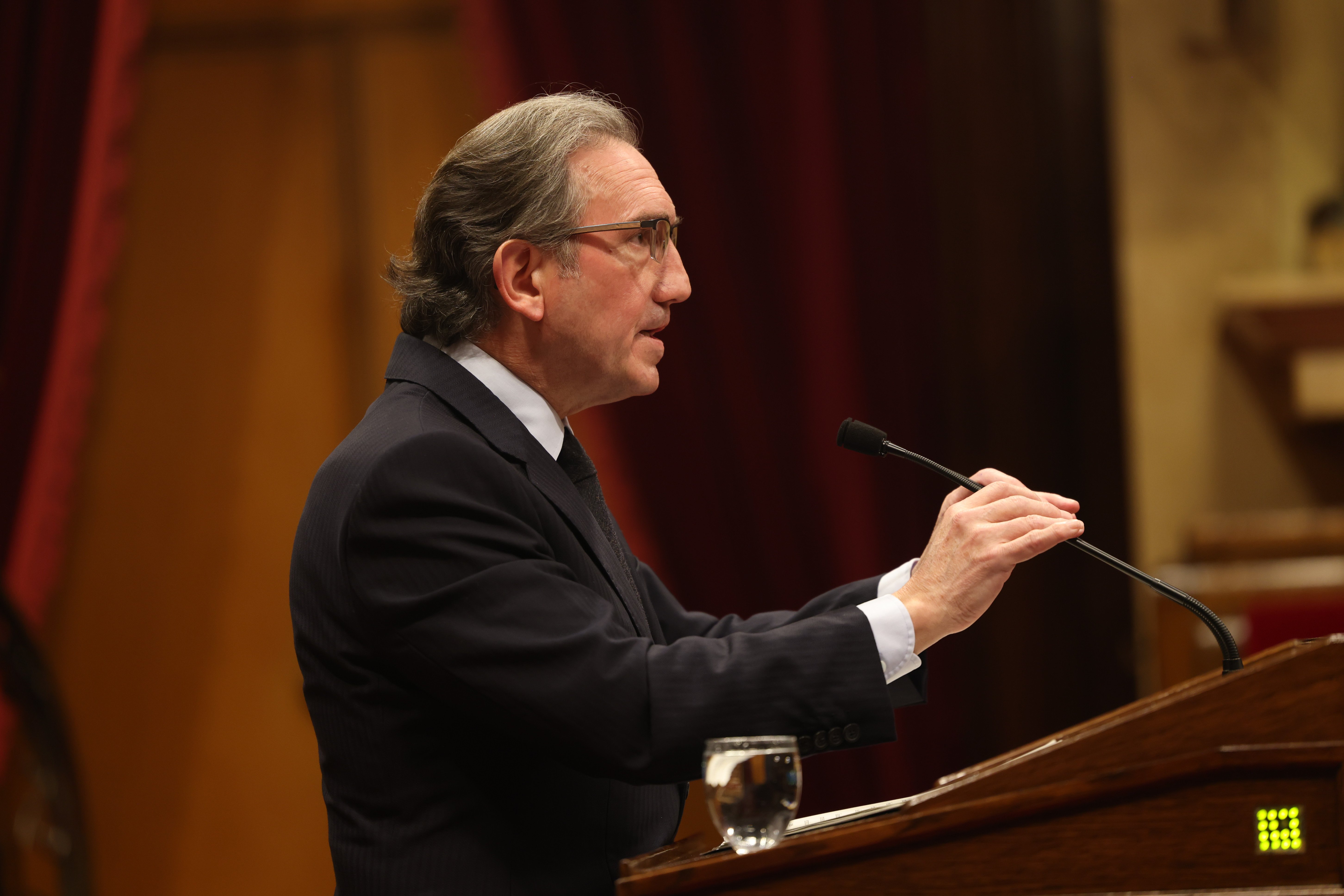The last parliamentary step before the passing of the Catalan budget for 2022 gave rise this morning to a debate with a strong political content during which the minister of economy, Jaume Giró, speaking from the rostrum of Parliament, denounced the interference of the justice system in politics and the risks that this brings. In a forceful speech, Giró asserted the quality of Catalonia's new budget, but asserted that it is not as good as it could be, "because one of the pillars on which our country is based, that of liberty, is full of cracks today".
"As long as this pillar is not strengthened, as long as we cannot strengthen it as some of us would like, we must be content to continue to draft, year after year, a budget that is only 'good' that aspires to improve our equality of opportunity and shared prosperity, but not a budget that is free", he said, warning that as long as Catalonia is not a fully sovereign country, it will not be a fully just country either. He also insisted that, however, these 2022 accounts "are aimed at working for freedoms, to the extent that we can do so."
Judicial interference
Previously, and after briefly responding to the different political groups that had spòken before him, the Catalan minister recalled that the government had had to incorporate changes in the accounts to respond to the decision of the Spanish Constitutional Court to overturn Catalonia's reduction of personal income tax for lower incomes as well as the increase to 1 billion euros in the allocation for housing. He also highlighted the creation of the Complementary Risk Fund to undo the “confiscating effects” of the action by Spain's Court of Accounts against government officials in power at the time of the independence referendum in 2017. "A tribunal that operates outside the judiciary, but which nevertheless functions as if it were a court of law without being one," he retorted.
Fourthly, he referred to the judicial intervention against Catalan language immersion, which has forced the executive to act to defend the language and "the non-negotiable commitment of the government to strengthen the presence of the Catalan language through culture and education". At this point, he said that in addition to the increase of 24% in resources allocated to the language policy ministry, next year's budget will "mobilize the necessary items" to once again reverse the "disastrous effects" of the ruling of the Catalan High Court (TSJC), endorsed by the Supreme Court, that imposes 25% Castilian languages in classrooms. Here he also stressed the stand-off position taken in this debate by the Catalan Socialists (PSC), party which historically has backed the immersion system.
Unprecedented: a government of judges
Giró emphasized that in all of the four issues he had highlighted - personal income tax, housing, the Complementary Risk Fund and language - the Catalan Parliament's action was hampered by the political interference of the Spanish judiciary, and said that Spain was on a slippery slope towards what he described as "kritarchy", a system which is "quite unusual today and that is found almost nowhere". The minister explained that the terms kritarchy refers to a "form of government in which political and legislative action is in the hands of the judges", that is, "the government of the judges", and cited two examples of this: one among the tribes of Israel described in the Bible, and another in Somalia. "This is what is happening in Spain, especially with everything that has to do with Catalonia," he said.
The minister joked that this word was his gift to MPs who were concerned about the language. "There are some who go around bragging about the uniqueness of the letter ñ. If everything stays the same, soon they will be able to boast about being the only country on the planet with an advanced kritocracy," he said.
Giró closed his speech by emphasizing that the government budget "is created to work for equality, for equal opportunities and, therefore, to work to stimulate economic activity, wealth generation, redistribution and universal public services".
First budget on time since 2009
The minister had begun his speech by emphasizing that this is the first time since 2009 that a Catalan budget has been passed before the start of the year to which it applied and that, in five years out of the last ten, the government had had to extend its previous budgets due to the inability to pass a new one.
In this regard, he thanked the contributions of all political groups in the house and, in particular, the deputies of the left-wing En Comú Podem, as well as the support of the pro-independence coalition government, with the "constant encouragement" of both the president, Pere Aragonès, and the vice president, Jordi Puigneró, but also of the speaker of parliament, Laura Borràs, who facilitated its agile and efficient processing in the house.
The minister warned that it was essential for the budget to be passed to face a financial year that he warned "is full of challenges and uncertainties", and he reiterated the Catalan executive's call for the Spanish government to extend its Covid Fund, a step which he was convinced would be taken. "I am proud to be part of this government and to have been involved in drawing up the budget for the year 2022," he concluded.
In the main image, the Catalan minister of economy, Jaume Giró, during his speech in Parliament / Sergi Alcàzar

